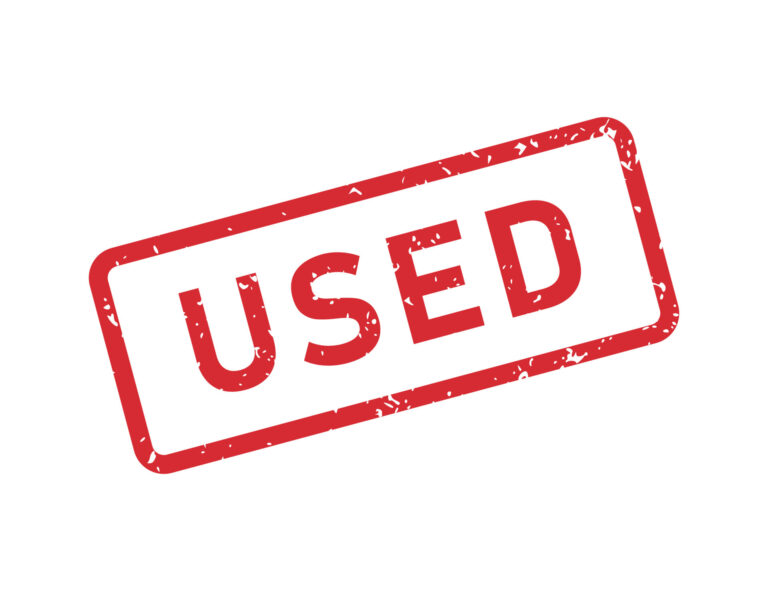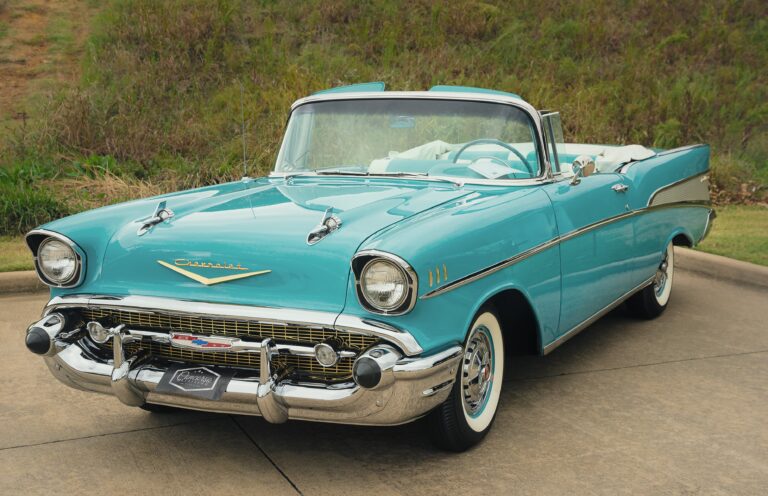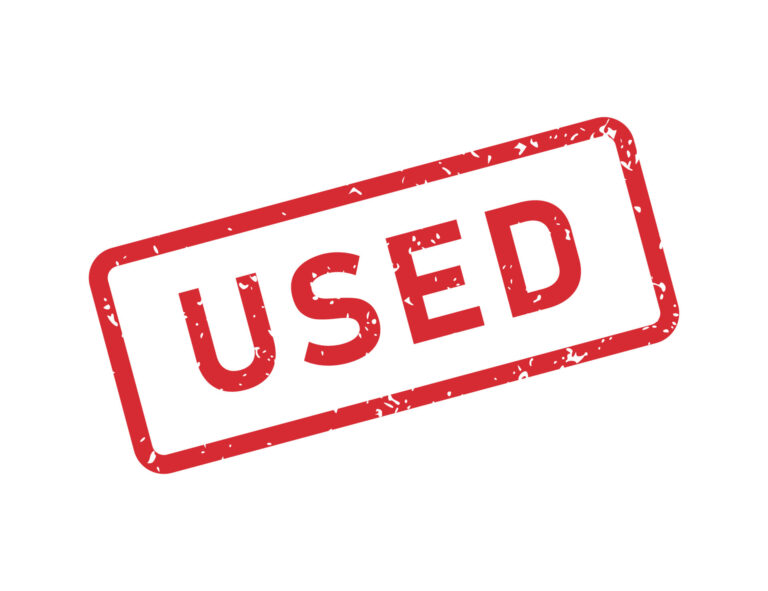Used Semi Trucks For Sale By Owner: A Comprehensive Buyer’s Guide
Used Semi Trucks For Sale By Owner: A Comprehensive Buyer’s Guide cars.truckstrend.com
Introduction: Unlocking Value in the Private Market
The asphalt ribbon stretches endlessly, a constant hum of engines defining the rhythm of commerce. For independent owner-operators, small fleet owners, or even aspiring entrepreneurs looking to enter the lucrative world of trucking, acquiring a semi-truck is often the first, most significant hurdle. While dealerships offer convenience and warranties, the private market – specifically, Used Semi Trucks For Sale By Owner – presents a compelling alternative, brimming with potential for significant savings and direct negotiation.
Used Semi Trucks For Sale By Owner: A Comprehensive Buyer’s Guide
Buying directly from an owner can unlock incredible value, offering a chance to acquire a well-maintained rig at a more competitive price, free from dealership markups and sales pressure. This approach, however, demands a proactive, informed, and diligent buyer. This comprehensive guide will navigate the landscape of private semi-truck sales, equipping you with the knowledge, tips, and insights needed to confidently find, inspect, negotiate, and purchase your next heavy-duty workhorse directly from its current owner. From the initial search to signing the final paperwork, we’ll cover every critical step to ensure a successful and rewarding acquisition.
Why Buy a Used Semi Truck From an Owner? Exploring the Benefits and Challenges
The decision to bypass a dealership and explore the private market for a used semi truck comes with a unique set of advantages and disadvantages. Understanding these upfront is crucial for setting realistic expectations and preparing for the journey ahead.
Benefits of Buying from an Owner:
- Significant Cost Savings: This is often the primary driver. Owners typically have lower overheads than dealerships, allowing them to sell trucks at a more competitive price. You avoid dealer markups, administrative fees, and sometimes, even sales tax depending on your state’s regulations for private sales (though always verify this).
- Direct Communication and Transparency: You get to speak directly with the person who has driven and maintained the truck. This allows for a deeper understanding of its history, quirks, and maintenance routine. An owner-operator can provide firsthand accounts of the truck’s performance, common issues, and any modifications.
- Potentially Better Maintenance Records: Many owner-operators are meticulous about their vehicles, as their livelihood depends on them. They often keep detailed maintenance logs, repair receipts, and service histories that might be more comprehensive than what a dealership provides.
- Less Sales Pressure: Unlike a dealership environment, private sales often involve a more relaxed, peer-to-peer interaction. You can take your time, ask questions without feeling rushed, and negotiate without the typical sales tactics.
- Unique Finds and Customizations: Some owner-operators invest heavily in customizing their trucks with specific features, enhanced comfort, or performance upgrades. The private market can be a treasure trove for these unique, well-appointed rigs.

Challenges and Considerations:
- No Dealership Warranty: This is perhaps the biggest drawback. Private sales are almost always "as-is," meaning once you buy it, any problems become your responsibility. This underscores the critical need for thorough pre-purchase inspections.
- Increased Due Diligence Required: The onus is entirely on the buyer to verify the truck’s condition, history, and legal standing. This requires more legwork, research, and potentially hiring third-party professionals.
- Risk of Scams: Like any private transaction, there’s a higher risk of encountering dishonest sellers, misrepresented vehicles, or outright scams. Vigilance and skepticism are your best tools.
- Financing Can Be More Complex: Securing traditional financing for a private sale can be more challenging than for a dealership purchase, as lenders often prefer to work with established businesses. You may need to explore specialized commercial lenders or secure personal loans.
- No Trade-In Option: If you’re looking to offload an old truck, you’ll need to sell it separately, adding another layer of complexity to your acquisition process.


The Search: Where to Find Owner-Sold Semi Trucks
Finding a reliable used semi truck for sale by owner requires knowing where to look beyond the conventional dealership lots. The digital age has opened up numerous avenues, alongside traditional networking.
- Online Marketplaces (Dedicated Commercial Sites):
- TruckPaper.com: One of the largest and most reputable platforms specifically for commercial trucks and trailers. It has robust search filters and often features owner listings.
- CommercialTruckTrader.com: Similar to TruckPaper, offering a vast inventory of commercial vehicles, including a significant number of owner-sold trucks.
- BigTruckSearch.com: Another specialized site aggregating listings from various sources.
- General Online Marketplaces with Commercial Sections:
- Facebook Marketplace: Increasingly popular for private sales, including heavy equipment. Search specific trucking groups or local marketplace listings. Be wary of scams, but good deals can be found.
- Craigslist: While it can be a wild card, local Craigslist listings often feature owner-sold trucks. Exercise extreme caution and always meet in a public place.
- eBay Motors: Less common for large commercial trucks, but sometimes unique or specialized vehicles appear here.
- Industry Forums and Social Media Groups: Join online forums dedicated to owner-operators, trucking companies, or specific truck brands (e.g., Peterbilt, Kenworth forums). Many members post trucks for sale or know someone who is selling. Facebook groups like "Owner Operator Truck Sales" or "Used Semi Trucks For Sale" are excellent resources.
- Local Advertising and Networking:
- Truck Stops and Travel Centers: Check bulletin boards or inquire with other drivers. Word-of-mouth is still powerful in the trucking community.
- Local Auctions (with caution): While many auctions are dealer-focused, some public auctions feature owner-consigned vehicles. Be aware that auction purchases are almost always "as-is" with minimal inspection time.
- Fleet Liquidation Sales: Occasionally, smaller fleets or individual owner-operators will advertise their sales directly.
When browsing, pay close attention to the listing details. Look for clear descriptions, multiple high-quality photos (interior, exterior, engine bay), and specific information about mileage, engine type, transmission, and maintenance history.
Essential Due Diligence Before You Buy
This is the most critical phase of buying a used semi truck from an owner. Skipping steps here can lead to costly regrets down the road.
-
The Pre-Purchase Inspection (PPI) by a Qualified Mechanic:
- Non-Negotiable: Never buy a semi-truck without a professional PPI from an independent, trusted heavy-duty mechanic. This mechanic should specialize in commercial vehicles and ideally have experience with the specific make and model you’re considering.
- What They Check: A thorough PPI includes engine diagnostics (computer scan for codes), transmission inspection, chassis and frame integrity (for cracks, welds), suspension, brakes, tires (tread depth, age), steering components, electrical systems, HVAC, and a general assessment of leaks or major wear.
- Cost vs. Value: A PPI might cost a few hundred dollars, but it can save you thousands by identifying hidden problems or providing leverage for negotiation.
-
Vehicle History and Maintenance Records:
- VIN Check: Run the VIN (Vehicle Identification Number) through services like Carfax or NMVTIS (National Motor Vehicle Title Information System) for commercial vehicles. This can reveal accident history, salvage titles, odometer discrepancies, and previous ownership.
- Request Maintenance Logs: Ask the seller for all service records, repair receipts, and maintenance schedules. Look for consistency in oil changes, major component replacements (engine overhaul, transmission rebuild), and DOT inspections. A well-documented history is a strong indicator of a responsible owner.
-
Title and Lien Check:
- Clear Verify the seller holds a clear title, free of any liens or outstanding loans. Request to see the physical title.
- Lien Search: Conduct a lien search through your state’s Department of Motor Vehicles (DMV) or equivalent agency. If there’s a lien, ensure the seller pays it off and gets a lien release before you complete the purchase. Never pay the seller directly if a lien exists; work with the lender or use an escrow service.
-
DOT Compliance and Regulations:
- Understand the current DOT (Department of Transportation) regulations. Ensure the truck, as it stands, can pass a DOT inspection. The PPI should cover this.
- Be aware of any recent changes in emissions standards (e.g., CARB regulations in California) that might affect older trucks.
-
Test Drive:
- A thorough test drive is essential. Pay attention to how the truck starts, shifts (both up and down), brakes, and steers.
- Listen for unusual noises (engine, transmission, air leaks).
- Check all gauges, lights, wipers, and other electrical components.
- Drive it under various conditions if possible (empty, light load, highway speed).
The Negotiation Process: Tips for a Fair Deal
Once you’ve completed your due diligence and are satisfied with the truck’s condition, it’s time to negotiate the price.
- Research Market Value: Before making an offer, research comparable trucks (make, model, year, mileage, condition) sold by owners in your region. Use resources like TruckPaper, Commercial Truck Trader, and recent auction results.
- Be Prepared to Walk Away: This is your strongest negotiating tool. If the seller is unwilling to budge on price or terms, be ready to move on to another option.
- Leverage Inspection Findings: Use any issues identified during the PPI as a basis for negotiation. Get quotes for necessary repairs and factor them into your offer.
- Consider Total Cost of Ownership: Beyond the purchase price, factor in potential immediate repairs, insurance, registration, and any necessary upgrades.
- Payment Method: For large sums, avoid cash. Consider a certified bank check, cashier’s check, or a wire transfer directly from your bank to the seller’s bank. For added security, especially if the seller has a lien, consider using an escrow service.
Legalities and Paperwork: Sealing the Deal
Proper paperwork is paramount to ensure a smooth and legal transfer of ownership.
- Bill of Sale: This is a crucial document. It should include:
- Full names and addresses of buyer and seller.
- Date of sale.
- Truck details: Make, model, year, VIN, odometer reading.
- Purchase price.
- A clear statement that the truck is sold "as-is" (unless otherwise agreed upon).
- Signatures of both buyer and seller. Notarization is highly recommended.
- Title Transfer:
- The seller must sign over the title to you. Ensure all information is accurate and legible.
- You will then take the signed title, bill of sale, and any other required documents to your state’s DMV or equivalent agency to transfer ownership into your name. Be aware of state-specific requirements and fees.
- Registration and Licensing: Once the title is in your name, you’ll need to register the truck and obtain appropriate commercial license plates. This often requires proof of insurance and a DOT inspection certificate.
- Insurance: Secure commercial truck insurance before you take possession of the vehicle. You cannot legally operate a semi-truck without proper insurance coverage.
- Sales Tax: Be prepared to pay sales tax on the purchase price, usually at the time of registration, unless your state has specific exemptions for private vehicle sales or commercial vehicles.
Potential Pitfalls and How to Avoid Them
While the private market offers opportunities, it also harbors risks.
- Undisclosed Defects: The biggest pitfall. A thorough PPI is your best defense against hidden mechanical issues. Don’t rely solely on the seller’s word.
- Scams and Fraudulent Listings:
- Too-Good-To-Be-True Prices: If a deal seems suspiciously cheap, it probably is.
- Pressure Tactics: Sellers demanding immediate payment or refusing inspections are red flags.
- Reluctance to Show Paperwork: Any hesitation to provide VIN, title, or maintenance records should raise concerns.
- Non-existent Trucks: Be wary of listings with generic photos or sellers who can’t meet in person.
- Incomplete or Incorrect Paperwork: Verify every detail on the title and bill of sale. Ensure all necessary signatures are present and legible. A mistake here can lead to significant headaches at the DMV.
- Mismatch Between Expectations and Reality: Be realistic about the condition of a used truck. Expect some wear and tear. The PPI will help align your expectations with the truck’s actual state.
Price Table: Understanding Used Semi Truck Values (By Owner)
The price of a used semi truck sold by owner can vary wildly based on numerous factors. This table provides a general range and key considerations rather than definitive prices, as the market is constantly fluctuating.
| Category of Truck (Age/Mileage) | Key Features & Considerations | Typical Price Range (By Owner) | Notes |
|---|---|---|---|
| Older (10+ years), High Mileage | 700,000+ miles. Original engine/transmission likely. Visible wear and tear, potential for immediate repairs. Good for local hauling or budget entry. | $15,000 – $35,000 | Best for buyers with mechanical skills or a significant repair budget. Focus on frame integrity. |
| Mid-Range (5-9 years), Moderate Mileage | 400,000 – 700,000 miles. May have major components (engine/trans) rebuilt or replaced. Good overall condition, but diligent inspection is crucial. | $35,000 – $70,000 | Offers a balance of affordability and remaining useful life. Most common segment for owner-operators. |
| Newer (2-4 years), Lower Mileage | Under 400,000 miles. Excellent condition, minimal wear. Often sold due to fleet upgrades or owner-operator changing lanes. Might still have extended warranty. | $70,000 – $120,000+ | Closest to new without the full depreciation. Higher initial cost but potentially lower immediate maintenance. |
| Specialized/Customized Trucks | Heavy haulers, custom sleepers, specific vocational setups (e.g., dump, logging conversions), high-performance engines. | Varies widely, often higher | Price depends heavily on the specific customizations, niche demand, and the quality of the modifications. |
| "As-Is" Project Trucks | Non-running, salvage title, major mechanical issues, or significant body damage. Requires extensive work. | Under $15,000 (often $5k-$10k) | Only for experienced mechanics or those with a dedicated shop and significant time/capital to invest. High risk. |
Key Factors Influencing Price:
- Make & Model: Certain brands (Peterbilt, Kenworth) often command higher prices due to reputation and resale value.
- Engine & Transmission: Specific engine models (e.g., Cummins, Detroit Diesel) and transmission types (manual vs. automatic) impact value.
- Condition: Overall mechanical and cosmetic condition, rust, tire wear, interior cleanliness.
- Maintenance History: Well-documented, consistent maintenance adds value.
- Specifications: Sleeper size, axle configuration, horsepower, torque, specific features.
- Market Demand: Regional demand and current economic conditions.
Frequently Asked Questions (FAQ)
Q1: How old should a used semi truck be when buying from an owner?
A1: There’s no single "ideal" age. Trucks 5-9 years old (with 400k-700k miles) often offer the best balance of price and remaining useful life. Newer trucks (2-4 years) are great but more expensive. Older trucks (10+ years) can be very affordable but require more scrutiny and potential repairs.
Q2: What’s the ideal mileage for a used semi truck?
A2: For a typical Class 8 semi, 400,000 to 700,000 miles is considered moderate mileage. Engines are often designed for 1 million miles or more before a major overhaul, and transmissions even longer. What’s more important than just mileage is the maintenance history associated with that mileage.
Q3: Should I buy a truck with an existing owner-operator business?
A3: This can be complex. While appealing, it often means paying for goodwill and customer lists, which are hard to value. Focus on the truck first. If the business aspect is included, get a separate valuation for it and consider consulting a business broker or attorney.
Q4: Can I get financing for a private sale?
A4: Yes, but it can be more challenging than dealership financing. You’ll likely need to work with specialized commercial truck lenders or equipment financing companies. Banks may require a higher down payment or a strong credit history for private sales. Be prepared with the truck’s VIN, photos, and the seller’s information.
Q5: What’s the most common reason owners sell their semi trucks?
A5: Common reasons include upgrading to a newer model, changing vocations, retirement, health issues, consolidating fleets, or simply finding a truck that better suits their specific needs. Understanding the seller’s reason can sometimes provide insight into the truck’s history.
Q6: What if the seller is out of state?
A6: Out-of-state purchases are common but add complexity. You’ll need to arrange for a remote PPI, potentially travel for inspection and pickup, and understand the title transfer and sales tax implications for both states involved. Escrow services are highly recommended for large out-of-state transactions.
Conclusion: Driving Towards a Successful Purchase
Buying a used semi truck for sale by owner is a journey that, while demanding, offers the potential for substantial financial reward and the satisfaction of securing a vital asset on your own terms. It requires patience, meticulous due diligence, and a willingness to engage directly in the negotiation process.
The key to success lies in thorough preparation: from diligently searching for the right vehicle and understanding its market value, to the absolute necessity of a professional pre-purchase inspection. By meticulously verifying maintenance records, ensuring a clear title, and navigating the legalities with care, you can mitigate the inherent risks of a private transaction.
Ultimately, a well-executed private purchase can put you behind the wheel of a reliable workhorse, saving you thousands compared to dealership prices. Armed with the insights from this guide, you are now better equipped to embark on your search, make informed decisions, and confidently drive away with a used semi truck that serves your business for years to come.






